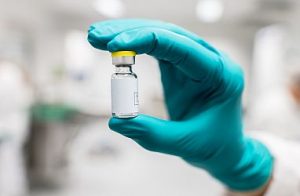AI models may play a significant role in combating COVID-19
This shows the indicative of the relationship between a human brain and AI learning- an AI tool analyzes data using algorithms that a human has programmed.
November 23, 2020
With over one million fatalities worldwide due to the coronavirus, clinicians and researchers are exploring artificial intelligence (AI) tools to aid in early prognosis and diagnosis, as well as the search for a vaccine.
“One of the most promising applications of AI in healthcare is using machine learning to help diagnose and select the most effective treatment for patients,” computer science teacher Jean-Marie Stewart said.
Machine learning recognizes patterns in massive data sets that can be used to predict places in the world where the disease may travel to next, as well as help to identify which patients are at a higher risk of mortality from the disease.
“I think one of the main advantages of using machine learning is that the software finds patterns that the programmers and researchers don’t even know to look for,” Stewart said. “When done well, the machine learning models can be more accurate than humans at recognizing diseases.”
According to Health IT Analytics, New York University researchers developed one AI tool that would be able to accurately predict which newly diagnosed patients with COVID-19 at a Chinese hospital would develop severe respiratory issues using predictive analytics.
Researchers were surprised when the model revealed that markers believed to be best at predicting disease severity—which included age, gender, patterns in lung images and strong immune responses—were not actually effective when predicting mortality. Instead, the AI tool found that changes in enzyme alanine aminotransferase (ALT), reported myalgia and hemoglobin levels were most accurate in prognosis.
Models like these can be helpful for physicians to distribute scarce medical resources first to those with higher risk of disease progression, while allowing patients with less risk to safely recover at home.
“Since COVID-19 is such a widespread and easily contractible disease, it is important that we are treating it in the most efficient manner,” junior Meghana Vasireddy said. “With AI, we can make sure to allocate resources in the way that is beneficial.”
AI models can also be of value in the search for potential vaccines. The Human Immunomics Initiative is a project under the Harvard School of Public Health that uses AI to decode immune responses in the elderly, since they are in the higher risk category. Many candidates for potential vaccines have been eliminated due to knowledge gaps concerning the human immune system, especially in older people.
The Human Immunomics Initiative project also aims to collect data that can be used to inform future artificial intelligence models. These models may be used in virtually testing potential vaccines and identifying which drug therapies may work best across populations.
“It’s very important that we obtain a vaccine because of the magnitude of the danger of the pandemic,“ Vasireddy said. “AI seems to eliminate some of that public fear that [arises] over a vaccine that comes out sooner than a traditional one.”
By analyzing large data sets and drawing conclusions based on a constant algorithm, AI tools can significantly reduce inaccuracies that can arise due to human miscalculation. This can be especially important in the documentation of massive sets of medical data as well as the development of accurate treatments and vaccines.
“AI does eliminate some of the public fear over the [possible complications that may rise] with a vaccine that comes out sooner than expected,” Vasireddy said. “[AI] could be comforting since there’s less room for human error.”




